
Grotella is a genus of moths of the family Noctuidae first described by Leon F. Harvey in 1875.
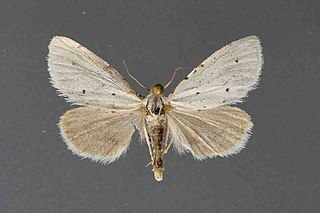
Grotellaforma is a monotypic moth genus of the family Noctuidae erected by William Barnes and Foster Hendrickson Benjamin in 1922. Its only species, Grotellaforma lactea, was first described by Stretch in 1885. It is found in North America, including California and Arizona, its type locations.

Grotella dis is a moth in the genus Grotella, of the family Noctuidae. The species was first described by Augustus Radcliffe Grote in 1883. This moth species is found in North America, from the Argus mts. in Kansas to North Mexico.

Grotella binda is a moth in the genus Grotella, of the family Noctuidae. The species was first described by William Barnes and James Halliday McDunnough in 1907. This moth species is found in North America, including Arizona, its type location.

Grotella blanca is a species of moth in the genus Grotella, of the family Noctuidae. This moth is found in North America, including Arizona, its type location. The species was first described by William Barnes in 1904.
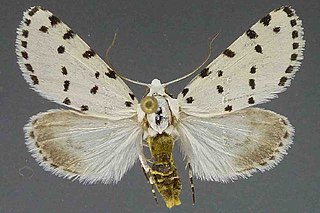
Grotella blanchardi is a moth in the genus Grotella, of the family Noctuidae. The species was first described by Rowland R. McElvare in 1866. This moth species is found in North America, including New Mexico and Texas.
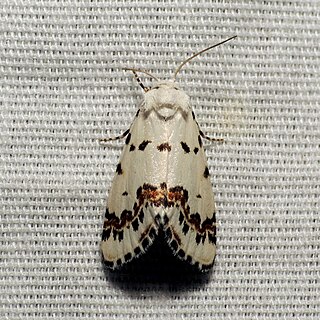
Grotella tricolor is a species of moth in the genus Grotella, of the family Noctuidae. This moth is found in the US states of California and Arizona. It was first described by William Barnes in 1904.
Grotella vauriae is a moth in the genus Grotella, of the family Noctuidae. The species was first described by Rowland R. McElvare in 1950. This moth species is found in North America, including Texas, its type location.
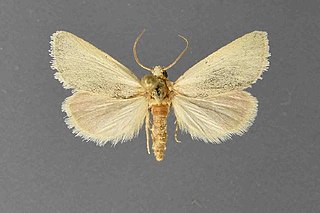
Grotella grisescens is a moth in the genus Grotella, of the family Noctuidae. The species was first described by William Barnes and James Halliday McDunnough in 1910. This moth species is found in North America, including New Mexico and Arizona.

Grotella harveyi is a species of moth in the genus Grotella, of the family Noctuidae. This moth species is found in North America, including Colorado, its type location.

Grotella olivacea is a moth in the genus Grotella, of the family Noctuidae. The species was first described by William Barnes and James Halliday McDunnough in 1911. This moth species is found in North America, including New Mexico, its type location.
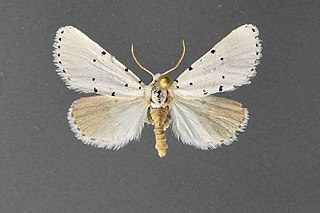
Grotella sampita is a moth in the genus Grotella, of the family Noctuidae. The species was first described by William Barnes and James Halliday McDunnough in 1907. This moth species is found in North America, including Arizona, its type location.
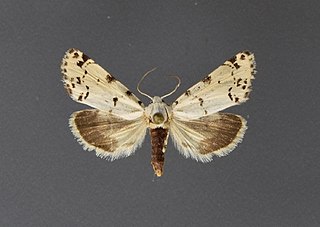
Grotella soror is a moth in the genus Grotella, of the family Noctuidae. The species was first described by William Barnes and James Halliday McDunnough in 1912. It is found in North America, including Arizona, its type location.

Grotella citronella is a species of moth in the genus Grotella, of the family Noctuidae. This moth is found in North America, including the Mojave Desert region of California. This species was first described by William Barnes and James Halliday McDunnough in 1916.

Grotella margueritaria is a moth in the genus Grotella, of the family Noctuidae. The species was first described by André Blanchard in 1968. This moth species is found in North America, including Texas, its type location.
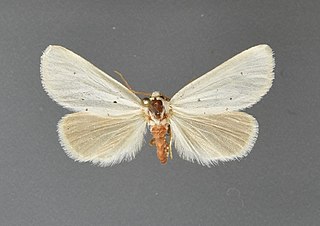
Grotella parvipuncta is a moth in the genus Grotella, of the family Noctuidae. The species was first described by William Barnes and James Halliday McDunnough in 1912. This moth species is found in North America, including New Mexico, its type location.

Grotella septempunctata is a moth in the genus Grotella, of the family Noctuidae. The species was first described by Leon F. Harvey in 1875. It can be found in North America, from Texas to Colorado.

Grotella stretchi is a species of moth in the genus Grotella, of the family Noctuidae. This moth species was first described by William Barnes and Foster Hendrickson Benjamin in 1922. It is found in North America, including California, its type location.
Grotella melanocrypta is a moth in the genus Grotella, of the family Noctuidae. The species was first described by Harrison Gray Dyar Jr. in 1912. This moth species is found in North America, including Puebla, Mexico, its type location.
Grotella pyronaea is a moth in the genus Grotella, of the family Noctuidae. It was first described by Herbert Druce in 1895. This species is found in North America, including Guerrero, Mexico, its type location.















